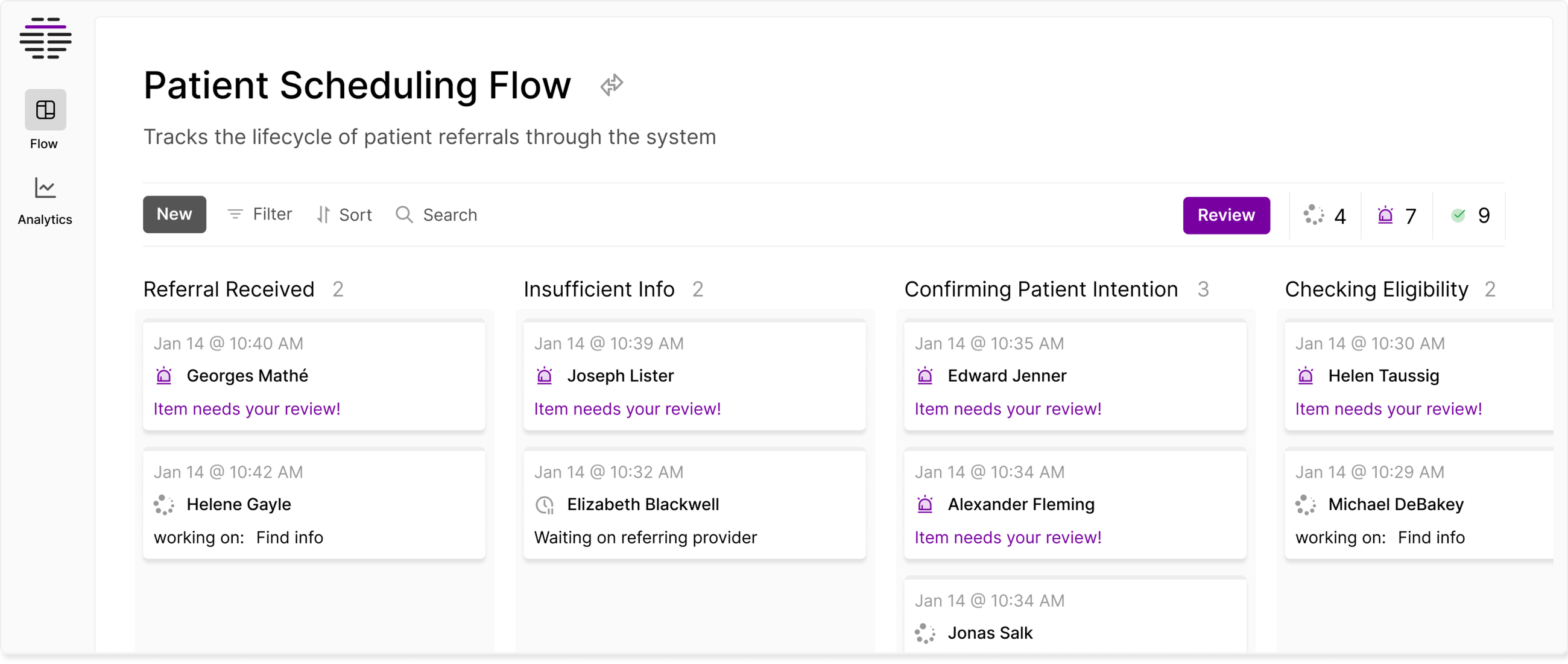The first fax device was invented in 1843, yet nearly two hundred years later, faxes are a de facto communication method in the healthcare industry. And it doesn’t just stop at faxes — healthcare has been plagued by manual, repetitive, and error-prone processes for decades. In the US alone, over $1.2 trillion is spent on healthcare across administrative spend. That’s nearly a quarter of all healthcare spending.
It’s why we’re so excited to announce that we are leading the Series B in Tennr as they fundamentally transform healthcare operations. The healthcare industry often runs into complex data entry, pages upon pages of detailed clinical information, and constant back and forth between providers. The industry deserves better, and we’re so excited about how this team is going to deliver efficiency at scale.
Tennr’s automation platform, powered by its vision language model, RaeLM™, is changing the game for millions of patients across the US healthcare system. The company’s proprietary model, RaeLM™, is trained on over 4 million medical documents, 230 million data fields, 8,000 page classifications, and 2 billion checkboxes. It’s the highest-performing document reasoning model in healthcare, with the ability to read, parse, and respond to the slew of messy documents healthcare practices send to each other.
Legacy RPA and OCR technologies have historically fallen short. Different document types, poor handwriting, or multiple patients included in a single document have meant that older technologies cannot meet customer expectations. Solutions have been brittle and narrow. So providers are left poring over nuanced medical information loaded with edge cases in an effort to see patients faster and get paid by insurance. It’s an outdated process that often leads to errors — and staff burnout.

This is one of many common scenarios that look entirely different with Tennr: Imagine a patient visits their primary care provider (PCP) and complains of persistent knee pain. The PCP refers the patient to an orthopedist, who faxes over a referral document with the patient’s information, their condition, and the reason for the referral. Once the orthopedist’s office receives the referral, an administrative team member or outsourced vendor has to manually input the relevant information into the right systems. Except, there were a few errors during the data entry process. Because of this, most important, patient care is delayed and misinformed, and the practice suffers unnecessary administrative costs and reimbursement friction. For the referring provider, the process feels like a black box– with little visibility into what’s happening–often leading to claims denials for the orthopedist. The process is terrible for everyone involved.
Tennr’s results speak for themselves: cutting pre-visit patient processing periods from weeks to hours, lowering front-end billing errors by 98%, and reducing insurance claim denials for providers.

What began with Diego’s frustrating experience of waiting weeks to hear back from a specialist he’d been referred to turned into an insight that back-office, patient-care workflows were able to change dramatically. Now, co-founders Trey Holterman, Tyler Johnson, and Diego Baugh are making real progress towards streamlining all of medicine’s pre-visit work across automated intake, clinical audits and reviews, requests for more information, prior authorization requests, and eligibility and benefits checks. Their tenacity as founders, relentless execution, and deep insights on the market got us particularly excited about working together.
Earlier this month, we wrote about the next frontier in enterprise automation: a shift from robotic process automation, where bots automate highly repetitive, high-volume tasks like processing transactions, processing documents, and data entry, to agentic enterprise automation, where LLMs have superior accuracy and reasoning capabilities and can grasp context and user intent, make complex decisions, and adapt to new tasks using unstructured data. Tennr is part of this new generation, bringing computer vision and large language models (LLM) together to perform human tasks without the entire flow being scripted in advance.
We believe the winners in agentic automation will be vertical-specific, provide end-to-end solutions, be able to write instead of just read and work well with unstructured data. Tennr is pioneering what this new class of software will look like.
We’re thrilled to have led Tennr’s Series B round and to support them as they transform what it looks like to run a healthcare practice — for providers and their patients.
Authors






